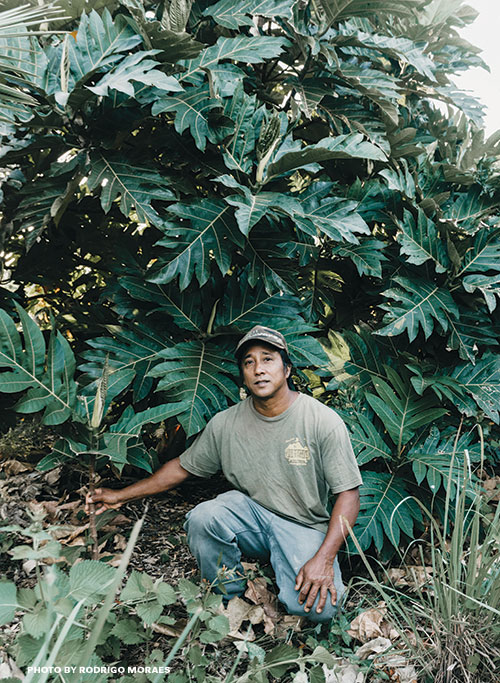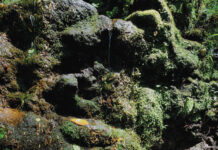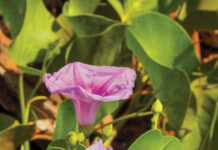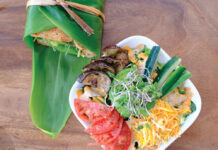
While dryland kalo remains Pahia’s most abundant yield, his farm produces other canoe crops, including 1,000 mai‘a (banana plants) that he’s using as seed stock to expand his numbers. Pahia also has 500 niu (coconut trees) in cultivation, and plans to expand that at least tenfold in the coming years.
“The land that I’m on has been corporately farmed for 144 years, so I have the chance to do something here that hasn’t been done before,” he says, mapping out his vision for a native forest created through regenerative practices.
“I see this project as a total simile to the plight of the Hawaiian people,” says Pahia. “The practices that were used on this ‘āina [land] caused the degradation of nutrients. The same thing happened to the people and culture. Now we’re trying to build life in the lepo [earth]. We’re trying to build life in the kānaka [people], too.”
Pahia talks lovingly about his youth in Waiāhole, growing up in a kalo-minded community and creating friendships with farmers. A life in agriculture might have been inevitable had it not been for his parents, who told him. “You’re gonna go to a private school; you’re going to college.”





